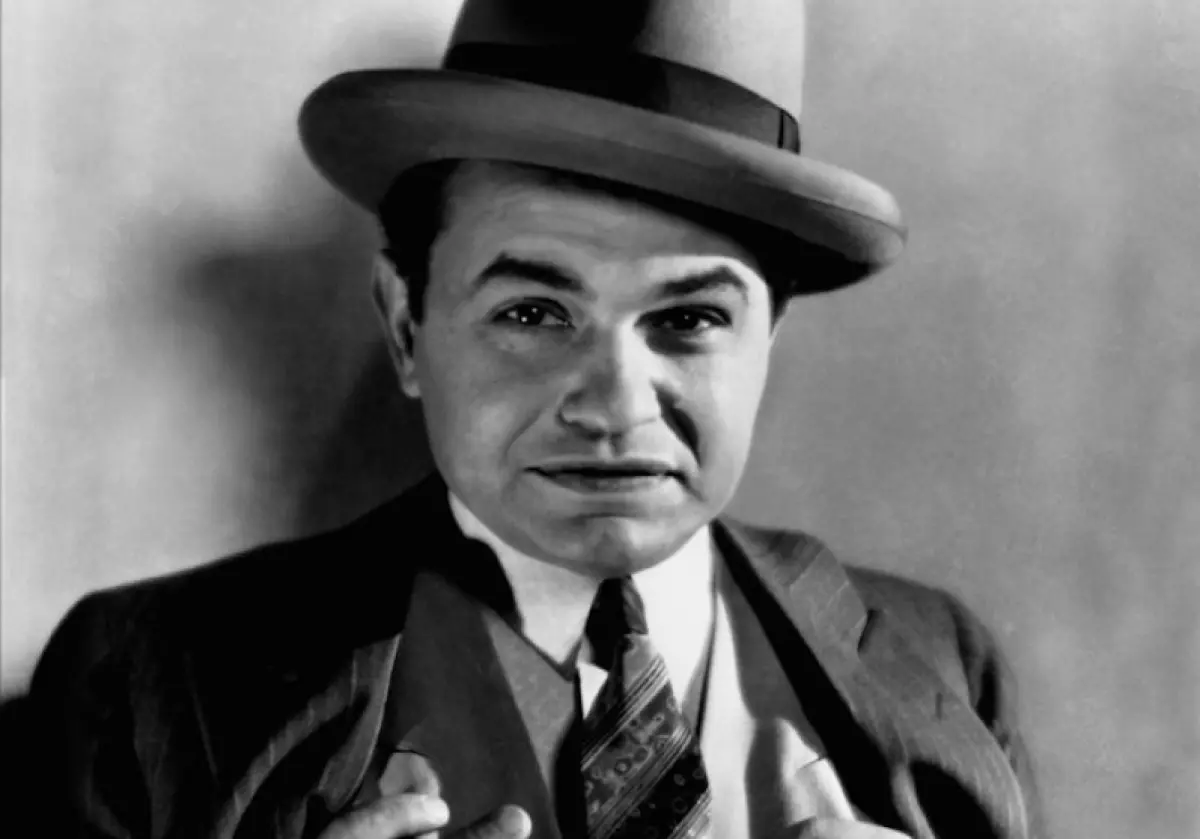
Over the course of fifteen months in the early 1930s, Warner Brothers released three iconic gangster films: "Little Caesar," "The Public Enemy," and "Scarface: The Shame Of A Nation." These movies not only captivated audiences but also propelled their leading men into stardom. In particular, Edward G. Robinson's portrayal of mobster Rico Bandello in "Little Caesar" left an indelible mark.
Robinson, with his undeniable magnetism on-screen, defied the conventional standards of a leading man. Despite his dark complexion, short stature, and stocky build, his powerful presence commanded attention. But behind the menacing facade, Robinson was a gentle, cultured man who possessed a deep appreciation for art and even contemplated a career as a rabbi.
Born Emmanuel Goldenberg in Romania, Robinson's family emigrated to New York City when he was young. Recognizing his talent for drama, he earned a scholarship to study acting and began his career in Yiddish theater before making his way to Broadway. Along the way, he transitioned from silent films and adopted the name Edward G. Robinson.
Following the success of "Little Caesar," Robinson became one of Warner Brothers' top stars in the 1930s and 1940s. Despite his brilliant performances in notable films like Billy Wilder's "Double Indemnity," Fritz Lang's "The Woman In The Window," and John Huston's "Key Largo," he surprisingly never received an Oscar nomination. Robinson's versatility allowed him to effortlessly portray both heroes and villains, showcasing his undeniable range.
In addition to his remarkable acting talent, Robinson was also politically outspoken, consistently voicing his opposition to fascism. However, during the era of the House Un-American Activities Committee (HUAC) hearings in the 1950s, his left-wing beliefs hindered his career. Although he appeared before the committee as a friendly witness and named no names, job offers dwindled. To make matters worse, Robinson had to sell his beloved art collection to cover the costs of his divorce settlement in 1956.
Thankfully, Robinson's career regained momentum in the following years, allowing him to continue working in film and television until his death from cancer in 1973 at the age of 79. Just months before his passing, he learned that he would be receiving a special Oscar for his lifetime achievements. Tragically, he didn't live long enough to accept the honor.
Edward G. Robinson was not only revered for his on-screen performances but was also admired for his intellectual curiosity and thoughtfulness. He embodied the essence of a Renaissance man, as recognized by the tribute read at his posthumous Oscar ceremony. In his own succinct words, he revealed the key to longevity in the entertainment industry: "To last, you need to be real."
Eddie G., you were always real.
Crime Does Pay — 10 Gangster Movies Worth Watching Tonight
Caption: Uncover the allure of the mob with these compelling gangster movies.
(Note: The caption should be added as a figcaption tag for the image)
















